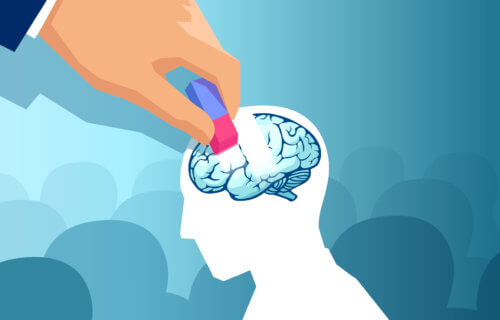SYDNEY — Preventing dementia is a priority for many middle-aged and older adults, particularly those who have Alzheimer’s disease in their family history. Now, a medicine made from a novel herbal extract may be the key to maintaining sharp cognition at any age, according to promising new research out of Australia.
Scientists at the Western Sydney University’s NICM Health Research Institute led a first-ever clinical trial assessing the efficacy and safety of sailuotong (SLT), and say their findings may open up an entirely new treatment avenue for older individuals living with mild cognitive impairment (MCI).
MCI is a condition that affects memory, thinking, and other cognitive functions, more than expected with normal aging, but not severe enough to interfere with daily life. It’s often seen as a stage before more serious conditions like dementia and Alzheimer’s disease. What makes MCI alarming is that current medications designed for Alzheimer’s don’t work well for MCI patients, leaving them with few treatment options.
Trial participants who were given SLT displayed noted improvements in aspects of both memory and executive function compared to those given a placebo. Specifically, benefits included better memory retrieval, stronger attention, and a greater ability to multitask.
What is SLT?
Sailuotong (SLT) is a standardized complex herbal formulation comprising three individual herbs: Ginkgo biloba, Panax ginseng, and Crocus sativus. It has been investigated for its potential benefits in vascular dementia and other conditions associated with cerebrovascular insufficiency.
The combination of these herbs is believed to have various properties that might combat MCI, including anti-inflammatory and antioxidant capabilities. Previous studies also highlighted its safety and potential cognitive benefits not just for MCI but also in vascular dementia and even in healthy adults.

This project was led by Genevieve Steiner-Lim, an NHMRC Emerging Leadership Fellow at NICM Health Research Institute. Steiner-Lim, an associate professor at the institute, is quite is optimistic about SLT’s potential as a treatment for MCI. People diagnosed with mild cognitive impairment deal with memory and other thinking issues, but can still live a largely independent life. While not everyone with MCI goes on to develop dementia, a notable portion do.
“People with mild cognitive impairment have an increased risk of dementia – over fivefold in some cases – and at the moment we do not have any approved medications for mild cognitive impairment,” Steiner-Lim says in a statement. “Our findings are very promising as they show that even after a relatively short treatment period of just 12-weeks, SLT can support important aspects of memory and thinking in people with mild cognitive impairment. It is also well-tolerated.”
“Early intervention is critical in order to delay or prevent a dementia diagnosis,” she adds.
Clinical trial results
This latest project was a 12-week randomized, double-blind, placebo-controlled pilot phase II trial featuring a total of 78 subjects (ages 60 and older) diagnosed with MCI. Participants were randomly assigned to receive either 180 mg/day capsule of SLT or a placebo.
The ensuing findings bring a fresh sense of optimism that a new treatment way be on the way for the 17 percent of people aged 60 and older living with MCI on a worldwide scale. Here are the key findings:
- Memory Improvement: After 12-weeks, subjects receiving SLT demonstrated a statistically significant improvement in Logical Memory delayed recall scores in comparison to the placebo group.
- Enhanced Executive Function: SLT treatment improved performance in executive function tasks.
- Safety and Tolerability: SLT was well-tolerated, with a low incidence of a mild or moderate adverse events.
Researchers theorize SLT may serve as a supportive therapy for memory and executive function in people with MCI. Of course, further research is needed to determine the long-term benefits of SLT and fully understand its clinical implications, including its impact on daily functioning and quality of life.
“More investment in this research is needed. The next step is to conduct another trial with a larger sample size and longer treatment period to test whether SLT can be used to treat mild cognitive impairment and potentially delay a diagnosis of dementia,” Steiner-Lim concludes.
The study is published in Alzheimer’s & Dementia.
